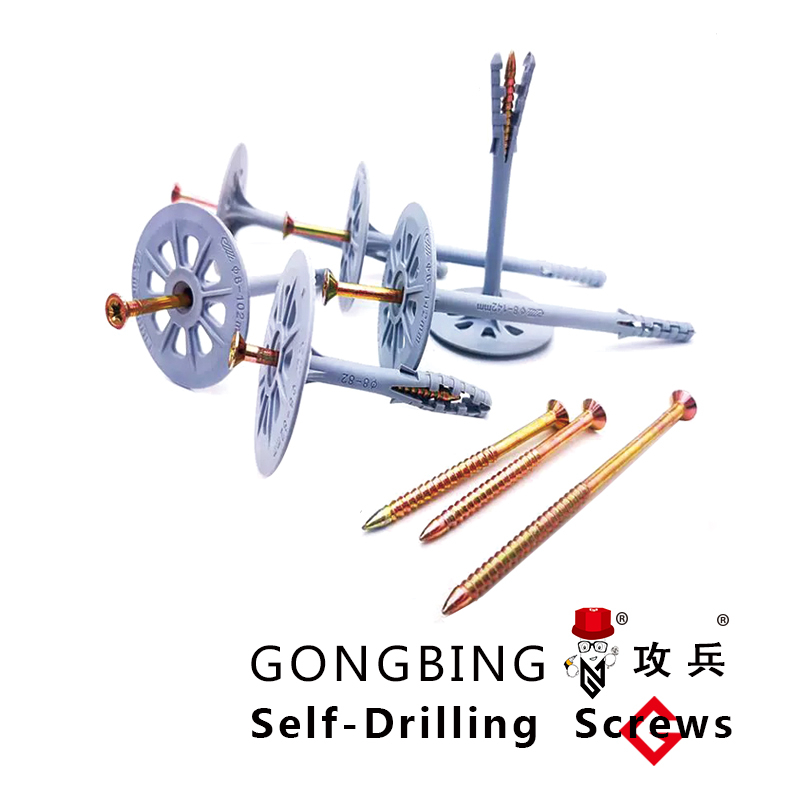Understanding Standard Wedge Bolts and Their Applications in Fastening Solutions
Understanding the Standard Wedge Bolt Characteristics and Applications
The standard wedge bolt is a vital component widely used in various construction and engineering applications. This specific type of bolt is designed for heavy-duty fastening, making it essential in applications where high strength and durability are required. In this article, we will explore the characteristics, applications, and advantages of standard wedge bolts.
Characteristics of Standard Wedge Bolts
Standard wedge bolts are characterized by their unique design, which consists of a threaded shaft, a wedge-shaped end, and sometimes, additional locking mechanisms. The wedge shape allows the bolt to embed securely into concrete or masonry, creating a strong anchoring point. The main features include
1. Material Composition Typically, standard wedge bolts are made from high-strength carbon steel or stainless steel. This ensures their resistance to corrosion and mechanical stress over time.
2. Threading The threaded portion of the bolt is crucial for ensuring a tight fit in the anchor. Standardized threading allows for compatibility with various nuts and washers, broadening their usability across applications.
3. Size Variability Wedge bolts come in different sizes and lengths, allowing engineers and builders to select the appropriate bolt for their specific applications, whether in residential, commercial, or industrial settings.
4. Load Capacity These bolts are engineered to withstand heavy loads, including tensile and shear forces, making them ideal for use in infrastructures such as bridges, buildings, and towers.
Applications of Standard Wedge Bolts
Standard wedge bolts are versatile and can be utilized in numerous applications
1. Construction They are extensively used for securing structural components in construction projects. Their ability to anchor beams, columns, and other elements to concrete foundations ensures the stability and integrity of buildings.
standard wedge bolt

3. Heavy Equipment In industries where heavy machinery is common, standard wedge bolts are used to secure machines to their bases or platforms, preventing movement and vibration during operation.
4. Road Infrastructure For road signs, traffic lights, and barriers, these bolts provide secure attachment to ensure safety and stability in public spaces.
Advantages of Using Standard Wedge Bolts
The benefits of standard wedge bolts are numerous
1. Easy Installation The installation process is straightforward, often requiring only basic tools. This ease of use contributes to faster project timelines.
2. High Strength Their robust design allows them to handle significant stress and load, making them suitable for critical applications where safety is paramount.
3. Corrosion Resistance Many standard wedge bolts are coated or made from materials that resist corrosion, extending their lifespan even in harsh environments.
4. Cost-Effectiveness Given their durability and strength, wedge bolts reduce the need for frequent replacements, resulting in long-term cost savings for projects.
5. Versatility Their adaptability across various applications makes them a staple in many industries.
Conclusion
In summary, standard wedge bolts are indispensable fasteners that ensure the structural integrity and safety of countless projects. With their robust design, high load capacity, and adaptability, they prove essential in diverse applications, from construction to infrastructure development. Understanding the characteristics and advantages of these fasteners aids in selecting the right components for engineering projects, ultimately leading to improved efficiency and safety in construction practices. As industries continue to evolve, the demand for reliable fastening solutions like standard wedge bolts will undoubtedly persist.
-
Weatherproof Plastic Expansion Anchors for OutdoorNewsJun.06,2025
-
Sustainability in the Supply Chain: Eco-Friendly TEK Screws ProductionNewsJun.06,2025
-
Load-Bearing Capacity of External Insulation FixingsNewsJun.06,2025
-
Double Head Bolts: Enhancing Efficiency in Industrial MachineryNewsJun.06,2025
-
Corrosion Resistance in Chipboard Screws: Coatings for Wholesale DurabilityNewsJun.06,2025
-
Butterfly Toggle Bolts : Enhancing Structural ResilienceNewsJun.06,2025
